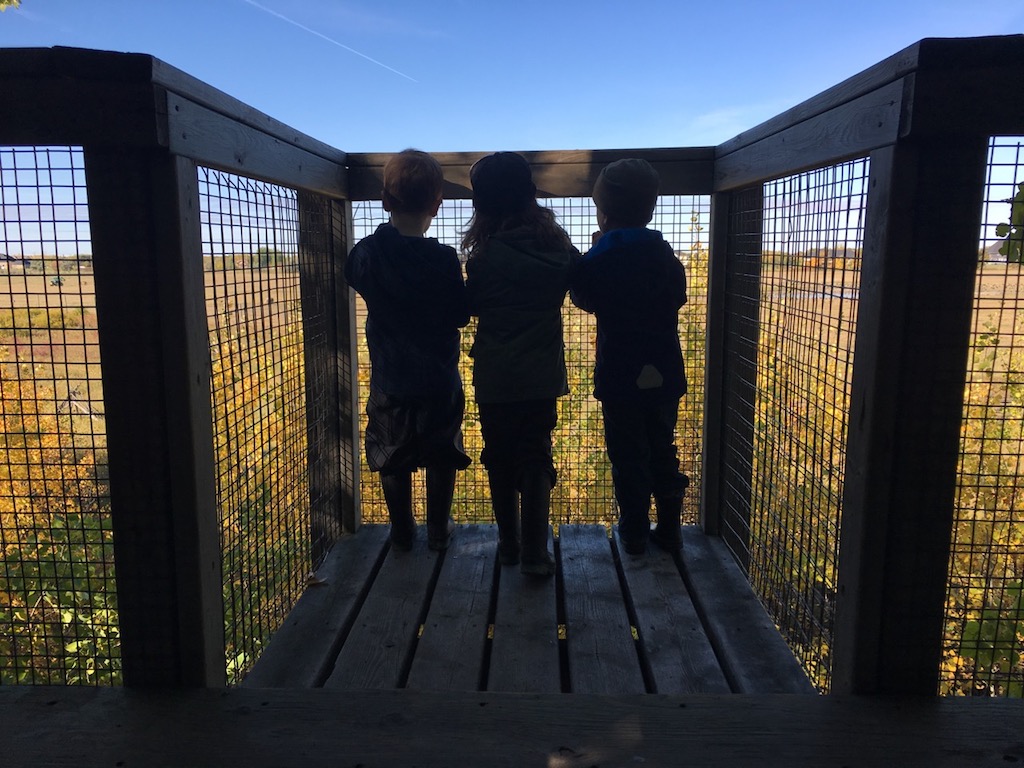
by Petra Eperjesi, Manager of National Programs, and Eva Klassen of the FortWhyte Alive Forest School.
Welcome to the fourth instalment of our series profiling Forest and Nature School programs in Canada. As part of our exploration, we sat down with Eva Klassen of FortWhyte Alive Forest School in Winnipeg, Manitoba. FortWhyte Alive will actually be hosting our Practitioners Course this May, and we will be observing their Forest School program as part of that course. Registration opens this Monday, January 29th. Please click here for more information.
You may be wondering if we are going to profile any programs outside of Ontario and Manitoba. Yes! We will! Please stay tuned, and if you’ve got a Forest and Nature School program you’d like us to know about, please get in touch!

Hi Eva! Can you tell us a little bit about the Forest School at FortWhyte Alive?
Our program is called FortWhyte Forest School and is located at FortWhyte Alive, an environmental education centre located in Winnipeg, Manitoba. FortWhyte Alive’s diverse landscape consists of 640 acres of grassland, wetland and lake habitats and represents 20% of Winnipeg’s urban green space. See https://www.fortwhyte.org
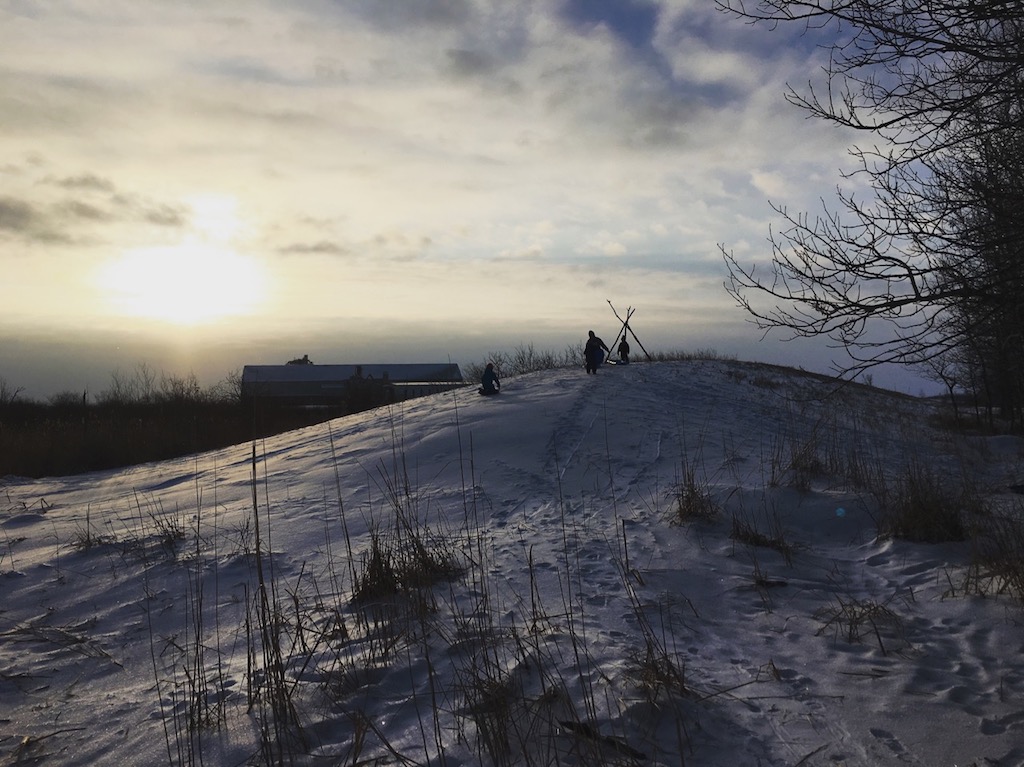
Can you describe your programs?
FortWhyte Forest School currently runs a pre-school program for kids age 3 to 5 years old. Sessions typically run Mondays and Wednesdays from 9:00 am to 12:00 pm and 12:30 pm to 3:30 pm.
We spend the majority of our time outdoors, but have access to a tipi, a heated yurt, as well as the Siobhan Richardson Field Station.
We also offer a Spring and Fall weekend Family Forest School program for those with children from 0-12 years of age. Here, parents can explore and learn alongside their children under the guidance of a staff member. FortWhyte has also established a Forest Immersion program for Home Schooled families which we offer seasonally.
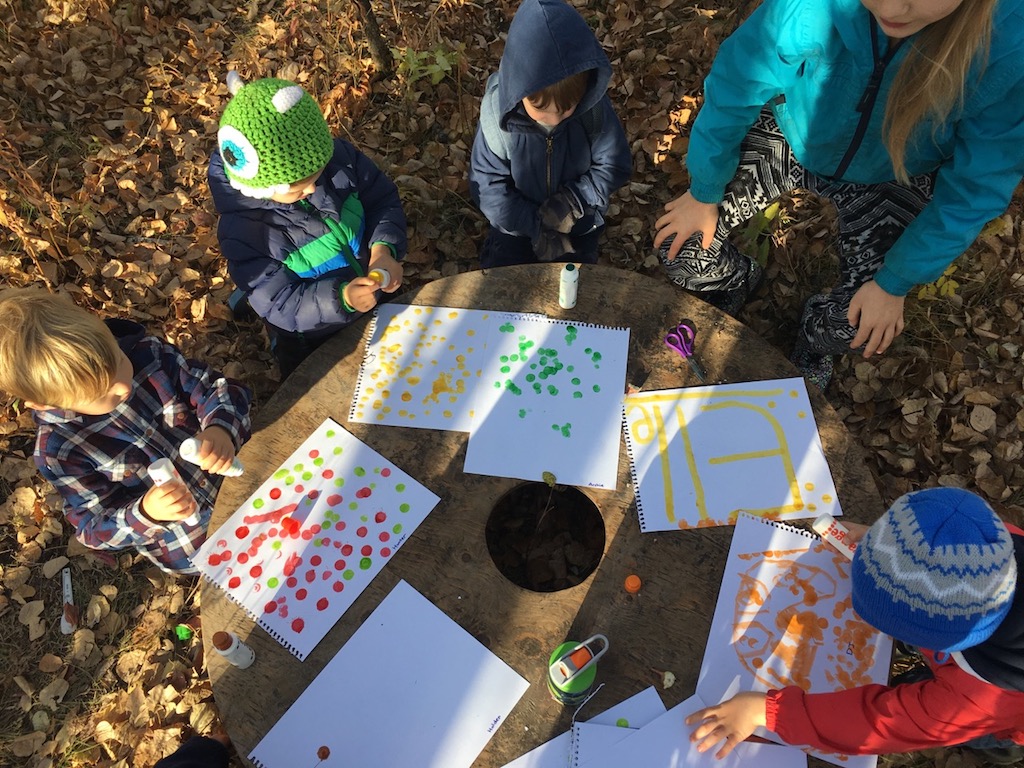
What is a “typical day” like?
A typical day begins with about a half hour of free play until everyone has arrived. We then gather our ‘owls’ together for a session of Parliament (because gatherings or groups of owls are called a ‘parliament’). We tell or read a story, touch base regarding any important things or reminders, discuss some of the changes that may be occurring in our environment, then make a plan for the day.
After the discussion, we set off on whatever we had decided to do, whether that’s going for a wander, sledding down the hill, exploring the frozen lake or staying close to home base and doing our own thing. We might whip up a feast in the mud kitchen, have some fun at our DIY zip-line or walk to the treehouse (a long walk, but well worth it).
We are open to possibilities and I like to stick to the rules of improv ‘don’t shut any ideas down, but rather use the phrase “yes AND…”’ Nearing the end of the session, we have our closing session of Parliament, pack up our snacks and head home.
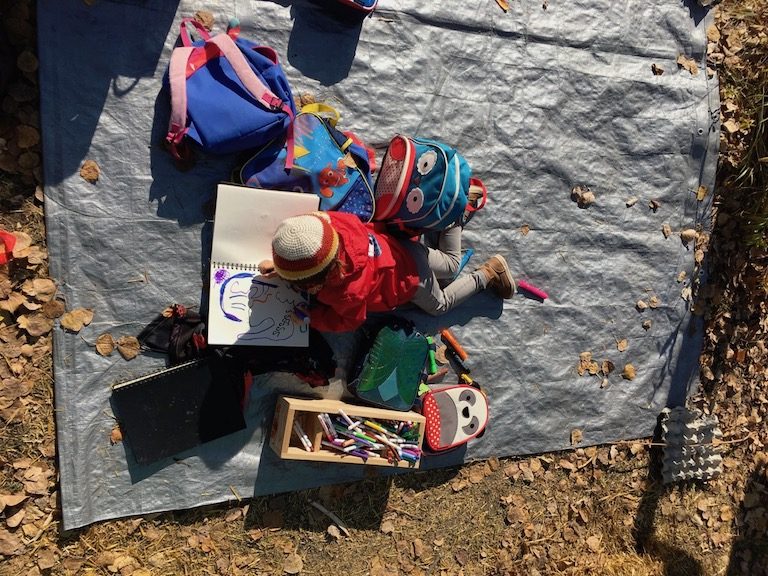
How did you get started as a FNS educator, and how did you land where you are now?
I spent a lot of time playing outside as a kid. It was the typical ‘go play outside’ from my mom and dad. We lived in a small village and I remember wandering through the whole village, spending hours up in trees, making things, dreaming, imagining and scheming.
While taking my degree in education at the University of Winnipeg, we touched briefly on such forward thinking schools in Europe where they allow kids to use saws and climb trees! I was in disbelief and awe and thought we’d never see it happen in Manitoba.
Ten years later and I’ve been proven wrong.
After finishing my degree, my partner and I fostered kids for a stretch. After this, I needed something more low key so I worked as a barista, then as a bicycle courier for six years. It was during this time that I heard Jody on CBC Radio talking about the Forest School pilot program at FortWhyte Alive.
I wrote up a letter and contacted her that very same day to see if I could volunteer. Long story short, my volunteer position turned into a facilitator position and here we are!
I then took the Forest School Practitioner’s course in St. John’s NFLD in August of 2017. It’s something I would highly recommend. I am constantly drawing on things that we discussed, referring to my notes, the resources, the booklists, etc. It was so much more than a study in Forest Schools, it becomes a community and a support network.
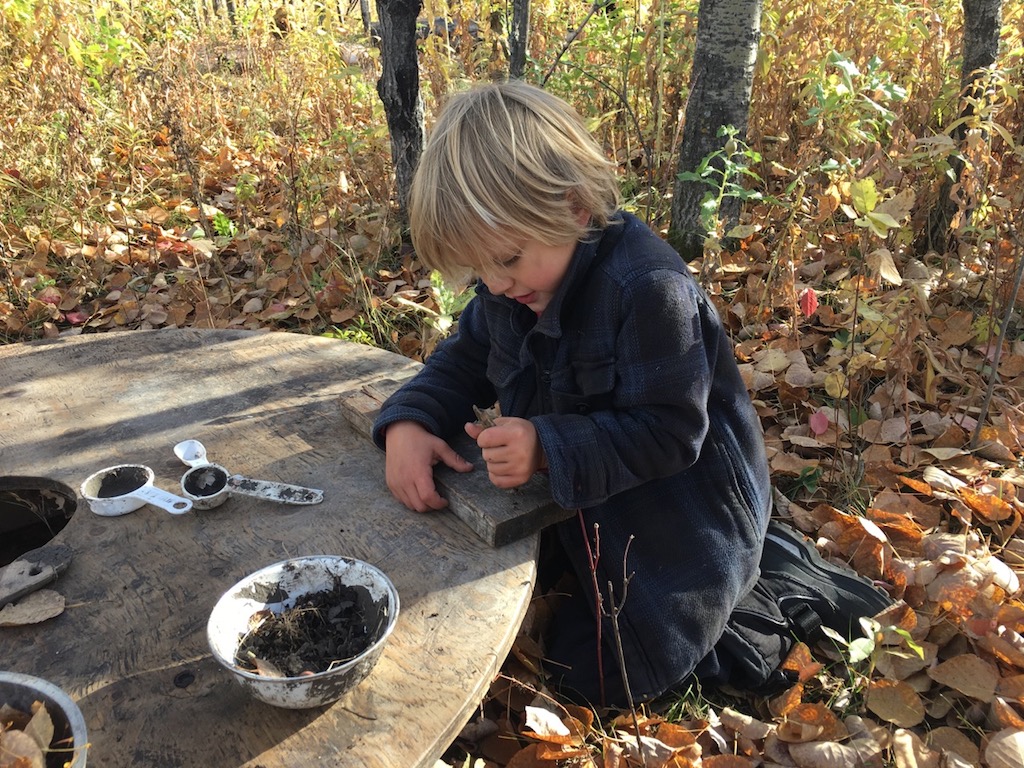
What have been some of the trickiest challenges you’ve faced, and how did you move through them?
Some of the trickiest challenges I’ve faced are feeling like a fraud. For me, this means feeling like I need to know everything (about nature, about child psychology, child development, group dynamics, etc.). I’m not an expert by any means and I struggle with having this expectation of myself.
I’ve moved through this by having high standards and low expectations. I am learning to accept what is and learning to go with the flow. The stress, for me, happens when there is a gap between what is happening and how I want the day to go. Letting go, being present and accepting ‘what is’ makes for a more authentic environment for everyone. I’ve also adopted the phrase “conflict is growth trying to happen” and that helps me reframe a lot of situations to see and experience them as positive rather than negative.
I have also found that moving at the pace of the kids eliminates so much frustration. The cliché phrase “it’s about the journey” rings very true in the Forest School setting. The learning takes place in the process, in the journey.
The most recent thing I’m learning (because goodness knows there’s always more to learn), is how to start a new Forest School session in the middle of winter. It’s definitely easier if you transition into the – 20 degree celsius cold weather as opposed to starting a session mid-winter, particularly for kids who have never been to Forest School. Again, it’s a process!
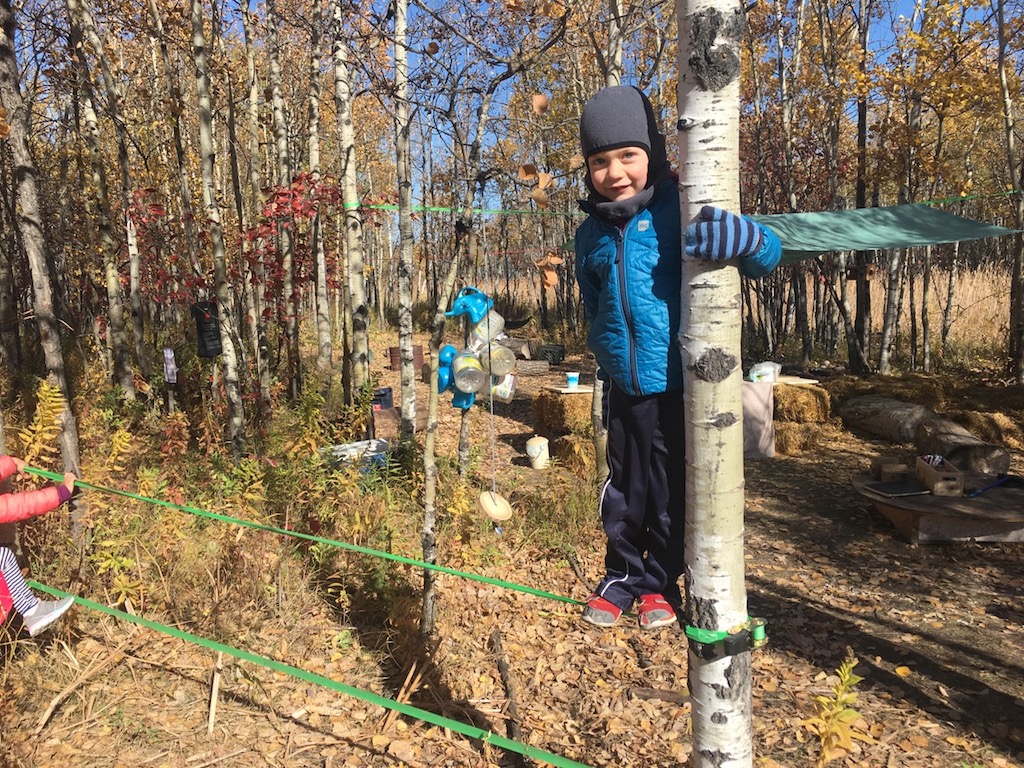
What advice would you pass along to folks hoping to start a FNS program?
These are nuggets of wisdom I’ve collected from folks I respect and admire:
- Just because it’s difficult doesn’t mean you’re doing it wrong.
- Treat everything as an experiment.
- Work with a team. (Wou can’t do it by yourself, and if you can, not for long.)
- Remember why you are there/why the program exists (define what success is for you and your program).
- Take care of yourself.
- Cultivate fun (don’t take yourself too seriously).
- Make time for yourself in nature.
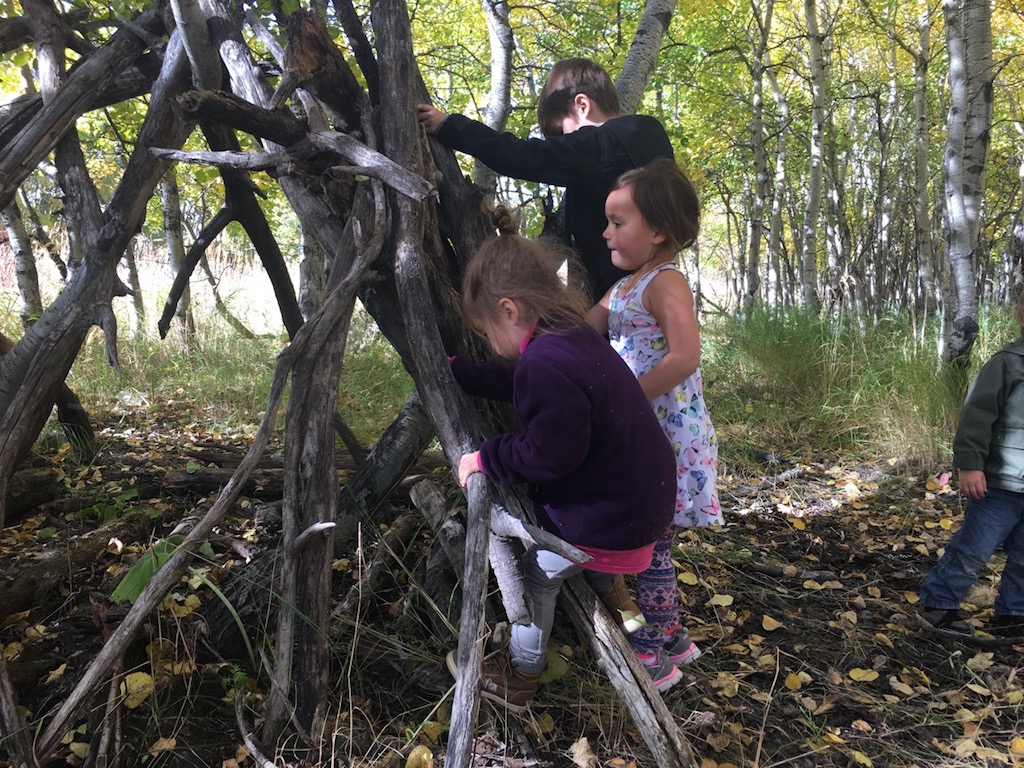
What hopes do you have for the Forest School program at FWA and for FNS in Manitoba and/or Canada?
The following story tumbled out one night while I was prepping for a meeting that touched on the future of FortWhyte Forest School and got me thinking about Forest and Nature Schools in general. The story sums up my hopes and dreams for Forest Schools both close to home, all over Manitoba and across the world:
Forest School
Eva Klassen
November 28 2017
Four brightly coloured walls
All covered with stuff
But deep in her heart
She knew it wasn’t enough
Her heart, it longed
For the forest, for green!
For statistics, she knew
Said more green makes you less mean!
We need to stain
Our knees grassy green
A stain so deep, so dark
It won’t even come out in the washing machine
We need the wind
And the grass in our hair
We grow up so fast
It won’t always be there
We need to know
About mud between our toes
The scrunching of leaves
Cattail seeds up our nose
That a stick is a sword,
A wand or a key
To a magical land
Only our eyes can see
We need to make room
For children to play
With rocks and with sticks
All day, every day!
Out in the woods
The forests, the fields
Where risk is encouraged
And we can be healed
Accessible to all
No child left behind
Imagine if we did
The future we’d find
More funding for pre-schools
Especially the kind
Where kids play outdoors
Shaping their mind
Where nature is teacher
And kids learn with ease
About things that they love
Birds, bugs and trees
We need Mother Nature
And she needs us
So let’s work together
Let’s debate, let’s discuss
The things in the world
That are best for human kind
Let’s start with forest schools
I know our kids won’t mind!
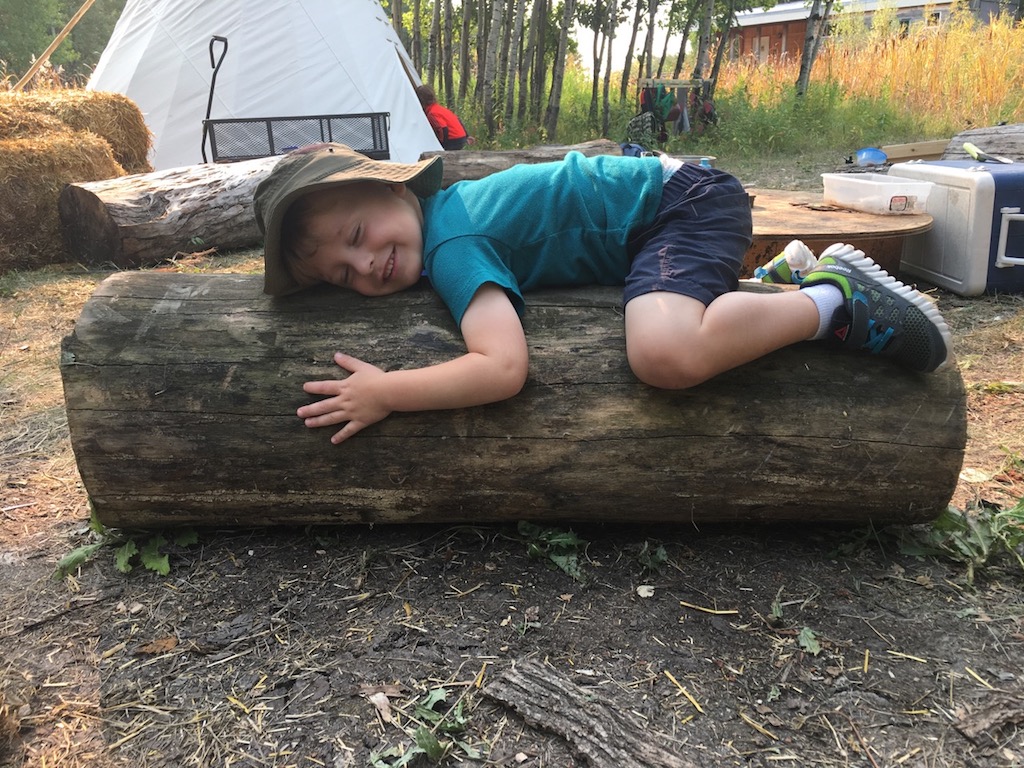

Wow Eva this is amazing! Thanks for sharing with us! Love the poem!!
Great interview and story at the end!